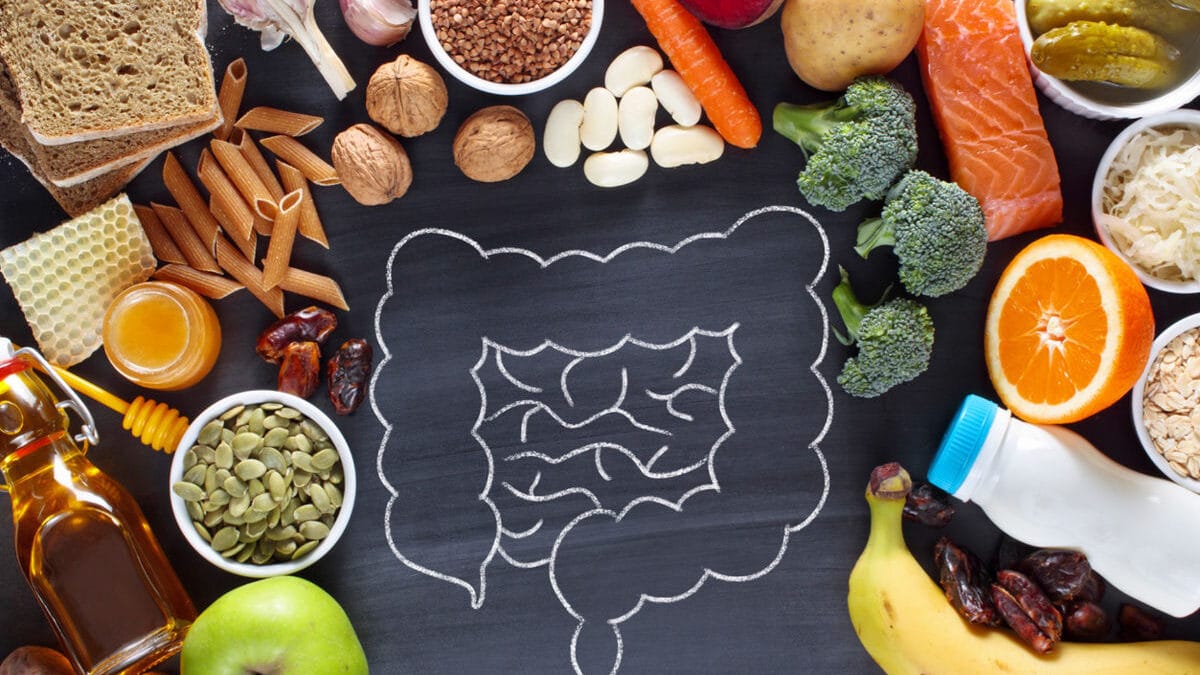Table of Contents
Introduction
The importance of gut health in overall wellness is gaining recognition, and a cleanse can be a great start. A healthy gut contributes to improved digestion, enhanced immunity, and even better mood regulation. This 5-day gut health cleanse is designed to reset your digestive system and promote overall well-being. By focusing on whole, nutrient-dense foods, you can support your gut microbiome and feel revitalized.
Share a brief story about your experience with gut health and how this cleanse transformed your well-being. Highlight improvements in energy levels, digestion, and overall health. For instance, you might mention how you experienced reduced bloating, increased energy, or better skin clarity after completing the cleanse. These personal insights will resonate with readers and encourage them to consider their own gut health.
Understanding Gut Health

- Microbiome Basics: The gut microbiome consists of trillions of bacteria that play a crucial role in digestion, immunity, and even mental health. A balanced microbiome is essential for optimal health. Discuss how these microorganisms help break down food, synthesize vitamins, and protect against harmful pathogens. Explain that an imbalance in gut bacteria—often caused by poor diet, stress, or antibiotic use—can lead to digestive issues and other health problems.
- Foods That Harm vs. Help: Discuss common dietary triggers such as processed foods, sugar, and artificial sweeteners, which can disrupt gut health. Explain how these foods may lead to inflammation and an imbalance in gut bacteria. Contrast these with gut-friendly foods like fiber-rich fruits and vegetables, whole grains, and fermented foods. Emphasize the importance of consuming prebiotics (found in foods like garlic, onions, and bananas) and probiotics (found in yogurt, kefir, and sauerkraut) to nourish and support a healthy gut microbiome.
Overview of the 5-Day Cleanse
- Structure of the Cleanse: Each day will include breakfast, lunch, dinner, and snacks, focusing on whole, unprocessed foods. Outline what participants can expect each day, including the types of foods they will be eating and the potential benefits they may experience. For example, you might mention that the meals will be rich in fiber and nutrients, promoting better digestion and a feeling of fullness.
- Detox Symptoms: Inform readers about common detox symptoms they may experience, such as fatigue, headaches, or digestive discomfort. Explain that these symptoms are often temporary and can be a sign that the body is adjusting to dietary changes. Reassure them that these symptoms typically resolve as the body begins to heal, emphasizing the importance of staying hydrated and listening to one’s body during the cleanse.
Daily Recipes
- Day 1:
- Breakfast: Green smoothie with spinach, banana, and almond milk. This smoothie is packed with nutrients, fiber, and antioxidants to kickstart the day. Spinach provides iron and folate, while bananas add natural sweetness and potassium.
- Lunch: Quinoa salad with cucumbers, tomatoes, and olive oil. Quinoa is a complete protein and rich in fiber, making it a perfect base for a nutritious salad. The addition of fresh vegetables provides vitamins and hydration.
- Dinner: Grilled chicken with steamed broccoli and sweet potatoes. This balanced meal offers lean protein, complex carbohydrates, and plenty of fiber. Sweet potatoes are high in beta-carotene and vitamin C, while broccoli is a cruciferous vegetable known for its gut health benefits.
- Day 2:
- Breakfast: Overnight oats topped with fresh berries and chia seeds. Oats are a great source of soluble fiber, which can help regulate digestion. Chia seeds add omega-3 fatty acids and additional fiber.
- Lunch: Lentil soup packed with vegetables. Lentils are rich in protein and fiber, promoting gut health and satiety. Include ingredients like carrots, celery, and tomatoes for added nutrients.
- Dinner: Baked salmon with asparagus and brown rice. Salmon is high in omega-3 fatty acids, which have anti-inflammatory properties, while asparagus is a prebiotic food that supports gut bacteria.
- Continue with recipes for Days 3 to 5, focusing on variety and nutrient density. Examples might include:
- Day 3: Smoothies, vegetable stir-fries, and chickpea salads.
- Day 4: Greek yogurt with honey and walnuts, vegetable soups, and grilled tofu with mixed greens.
- Day 5: Fruit salads, quinoa bowls, and roasted vegetables with hummus.
you can check 10 Dorm-Friendly Dessert Recipes You Can Make Without a Full Kitchen
Tips for Success
- Meal Prep Ideas: Suggest prepping meals in advance to make the process easier. Encourage readers to batch-cook grains, chop vegetables, and prepare snacks ahead of time to save time during the week. This can help reduce the temptation to reach for unhealthy options when hunger strikes.
- Staying Motivated: Share tips for keeping track of progress and staying committed. Consider recommending a journal to log meals, feelings, and any changes in health or mood throughout the cleanse. Encourage readers to find a support system, whether it’s friends or online communities, to share their experiences and stay motivated.
Post-Cleanse Maintenance
- Sustainable Practices: Discuss how to maintain gut health after the cleanse. Suggest gradually reintroducing foods that may have been eliminated during the cleanse, such as dairy or gluten, while paying attention to how their body reacts. This can help identify any food sensitivities or intolerances.
- Recommended Foods: List foods to incorporate into the diet moving forward, such as fiber-rich fruits and vegetables, whole grains, lean proteins, and healthy fats. Encourage readers to continue eating fermented foods like yogurt, kimchi, and kombucha to support their microbiome. Highlight the importance of hydration and regular physical activity for overall gut health.
Conclusion
- Encourage readers to share their experiences and any recipes they loved during the cleanse. Remind them that gut health is a journey, and small, consistent changes can lead to significant improvements over time. Emphasize that they should listen to their bodies and make adjustments as needed. Invite them to explore further resources on gut health and nutrition to continue their journey toward better health and well-being.
Top 10 Dessert Recipes That Won’t Keep You Up All Night
https://www.youtube.com/watch?v=BrtHl1wa_Jc&ab_channel=Feelin%27FabwithKayla
What Are the Best Recipes for Preventing Diabetes in Children?

It was a perect recipe for kids